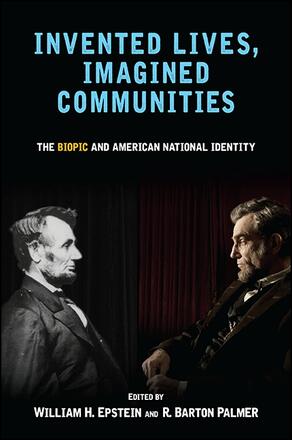
Invented Lives, Imagined Communities
The Biopic and American National Identity
Alternative formats available from:
How Hollywood biopics both showcase and modify various notions of what it means to be an American.
Description
Biopics—films that chronicle the lives of famous and notorious figures from our national history—have long been one of Hollywood's most popular and important genres, offering viewers various understandings of American national identity. Invented Lives, Imagined Communities provides the first full-length examination of US biopics, focusing on key releases in American cinema while treating recent developments in three fields: cinema studies, particularly the history of Hollywood; national identity studies dealing with the American experience; and scholarship devoted to modernity and postmodernity. Films discussed include Houdini, Patton, The Great White Hope, Bound for Glory, Ed Wood, Basquiat, Pollock, Sylvia, Kinsey, Fur, Milk, J. Edgar, and Lincoln, and the book pays special attention to the crucial generic plot along which biopics traverse and showcase American lives, even as they modify the various notions of the national character.
William H. Epstein is Professor of English at the University of Arizona. His previous books include Recognizing Biography and Contesting the Subject: Essays in the Postmodern Theory and Practice of Biographical Criticism. R. Barton Palmer is Calhoun Lemon Professor of Literature and Director of Film Studies at Clemson University. His previous books include Shot on Location: Postwar American Cinema and the Exploration of Real Place and (with William Robert Bray) Hollywood's Tennessee: The Williams Films and Postwar America.
Reviews
"…a fine addition to the increasing library of studies of the biopic genre. " — Biography
". ..a valuable resource for all who are interested in history and film … Highly recommended. " — CHOICE
"A provocative, critically astute study, this collection examines the biopic as a reflexive, refractive modernist film genre. Admirably researched essays provide close, compelling readings of chosen films, while exploring the multilayered matrices of historical fact, biographical and autobiographical literature, popular media representations, and cultural histories—shaping not only the lives and narratives of the performers, artists, and political/historical figures represented but also the practices of the filmmakers as they worked within or on the margins of the Hollywood industry. " — Cynthia Lucia, Rider University
"The volume's greatest strengths include its range, its variety of ideas on the significance of the biopic, and its research—definitive in several cases—into the relation between historical figures and their cinematic counterparts. " — James Morrison, author of Passport to Hollywood: Hollywood Films, European Directors